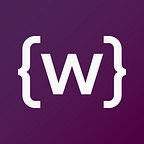Joining a seed-stage startup as an Operations Intern
by Grace Lee
Coming to Stanford, I knew that I wanted to explore health policy and technology, but I was unsure what to major in. As summer drew near, I was still undecided in terms of major, but wanted to spend my summer serving the community. My grandmother was diagnosed with dementia several years ago, and I’ve spent countless hours in high school volunteering in retirement homes, playing music for them and making crafts. I love serving seniors and I decided to apply for the Roland Longevity Fellowship.
Over the past year, I’ve had the pleasure of being an Operations Intern at Mon Ami, a Palo Alto based startup. Before COVID-19, Mon Ami was initially a business-to-consumer (B2C) company, focused on fostering intergenerational ties, bringing companionship to seniors. College students would visit seniors on a weekly basis to provide companionship by having conversations, doing puzzles together, and going on walks. However, after in person visits were suspended, Mon Ami created a phone bank, matching volunteers up with isolated seniors for weekly friendly phone calls, and facilitating essential errand runs for seniors in the Bay Area and LA. Mon Ami’s software, originally used to create matches between companions and seniors, was now used to create matches between volunteers and seniors in need. Community-based organizations such as SF Village, the Shanti Project, and Openhouse, relied on Mon Ami’s software to facilitate volunteer-senior matches for essential errand runs.
As an intern, I witnessed firsthand the sheer number of seniors impacted by COVID-19. I answered emails and phone calls from seniors requesting assistance: many seniors did not have the tech fluency or even technology to text or sign up for themselves. I used Mon Ami’s technology to promptly make matches, pairing seniors with volunteers for support. When Mon Ami piloted a version of the companion program with CIGNA, I helped launch a campaign to reach students in the Boston area as paid part-time companions. Although the Boston-area has many colleges, we needed to identify ways of reaching students when so many students are taking classes online and no longer on campus. Due to online-learning, the traditional avenues of reaching students: flyering and even posting location specific ads weren’t as applicable anymore. The CIGNA pilot program allowed for me to apply the 80–20 principle and focus on the avenues that truly worked and I summarized my tips and findings in a blog post. The program also gave me a glimpse into Mon Ami V1 — coordinating direct companionship for seniors.
A year later, Mon Ami is now a business-to-business (B2B) software company, helping community organizations scale support for seniors. When switching from an enterprise software model, Mon Ami had to discover what senior serving organizations truly needed. Many senior serving organizations were using outdated software and countless Excel files to manage their programs. Mon Ami developed features for reporting, coordinating a vaccine registration hotline for over 100,000 seniors in Montgomery County, as well as building a robust telephone reassurance program. In this new phase of Mon Ami, I’ve helped create weekly call reports for our organizations to help them with reporting requirements, written and updated blog posts to increase the SEO traffic, as well as researched and found contacts for potential leads. In shifting from a B2C to B2B model, there’s been challenges figuring out what features clients need the most: how consumers respond influences how we build software. I’ve done research on funding programs for senior services, which reinforced the importance of providing clear and accurate reports for our clients: these community organizations need compelling data to renew their grants. As part of this shift, I’ve observed that the more clients we onboard, the better idea we have of what features these organizations really need, and as we build those features, we’re able to onboard more and more clients!
While I’m not on the engineering team at an early-stage startup, I realized that I needed to own the experience and impact I will make — for me, this meant self-learning SQL outside of my internship and learning how to use Looker, a data visualization platform. I’ve gained experience with creating reports that would effectively display actionable insights at a glance. Instead of just pulling random metrics, I learned to ask myself “what problem are we trying to solve, and what data will answer that question?” When I helped build a dashboard for reporting purposes for the Oregon Council on Aging’s telephone reassurance program, I had to go beyond just looking at “total call minutes.” To help the Oregon Council on Aging better gauge the status of their program, I used key metrics that would clearly determine whether clients and volunteers were active, as well as finding the number of volunteers who attempted or completed a call each week.
Throughout my year as an Operations Intern, I’ve truly appreciated interacting with volunteers, seniors, as well as organizations to better serve the community. At the end of May, I’ll be leaving Mon Ami with experience with SQL and Looker, using SEO to optimize a website, creating a campaign to advertise a part-time position, and assisting the shift from B2B to B2C. I’ve also learned how important it is to understand the behavior and needs of customers, doing things that don’t scale, but also prioritizing what is feasible given the constraints of a small startup.
